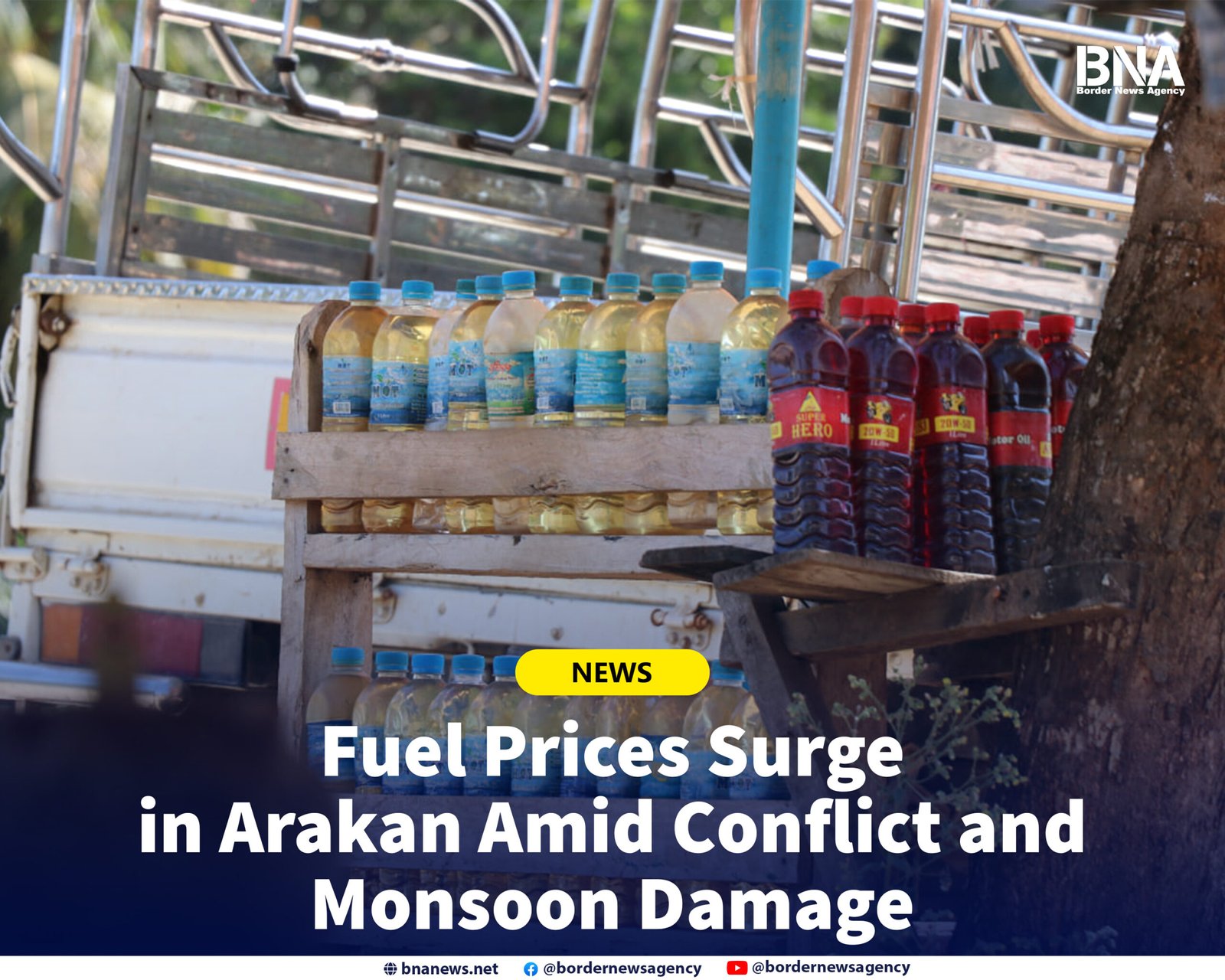Border News Agency
Kyauktaw, May 31
Due to heavy rainfall damaging some trade routes, fuel prices – including gasoline and diesel – have surged in the Arakan region, according to local traders and residents.
In recent days, the price of 92-octane gasoline, which was previously 9,000 kyats per liter, has risen to 11,000 kyats, while diesel, which cost 8,000 kyats per liter, has increased to 9,000 kyats, locals reported.
The rise in fuel prices – mostly imported from India is due to damaged road sections along the transport routes, traders said.
“A part of the Indian trade route was destroyed by rain, and since part of the road is still impassable, transportation costs have soared. As the rain hasn’t eased yet, river routes are also not navigable,” a fuel trader told Border News Agency.
Additionally, traders say that goods transported from junta-controlled areas are also facing serious delays due to heavy rainfall damaging the roads, making it difficult to deliver supplies.
As a result, fuel prices have surged sharply. A barrel of petrol, which previously cost around MMK 1.6 million, is now being sold for about MMK 2.1 million. Likewise, a barrel of diesel, once priced at around MMK 1.5 million, is now selling for roughly MMK 1.8 million, according to local fuel vendors.
However, fuel traders estimate that prices may not continue rising during the monsoon season and could potentially decrease.
“With the rainy season, if the waterways become navigable again, prices likely won’t keep rising. Repairs are also underway on some of the damaged roads,” another fuel trader told Border News Agency.
Due to a low-pressure area currently active in the Bay of Bengal, it has been raining continuously for nearly a week.
Since the start of the final phase of the Arakan war, the Myanmar junta’s ban on transporting goods and medicine has caused the people of Arakan to suffer from skyrocketing prices.
However, as some goods, medicines, and fuel are being imported through neighboring countries like India and Bangladesh, prices have slightly decreased, according to local residents.
“Compared to before, it was really difficult to get anything. Prices have dropped just a little,” said a female shopkeeper from Minbra Township to Border News Agency.
Arakan residents say they are struggling to import and use essential goods, medicines, and construction materials through difficult routes such as the Bangladesh and Indian borders, as well as a few other limited channels.
Because the region still lacks an organized trade system, all goods and medicines in Arakan remain significantly more expensive compared to other areas.
The Arakan People’s Revolutionary Government says it is working to improve trade routes to ensure a more reliable supply of essential goods and medicine within Arakan.






